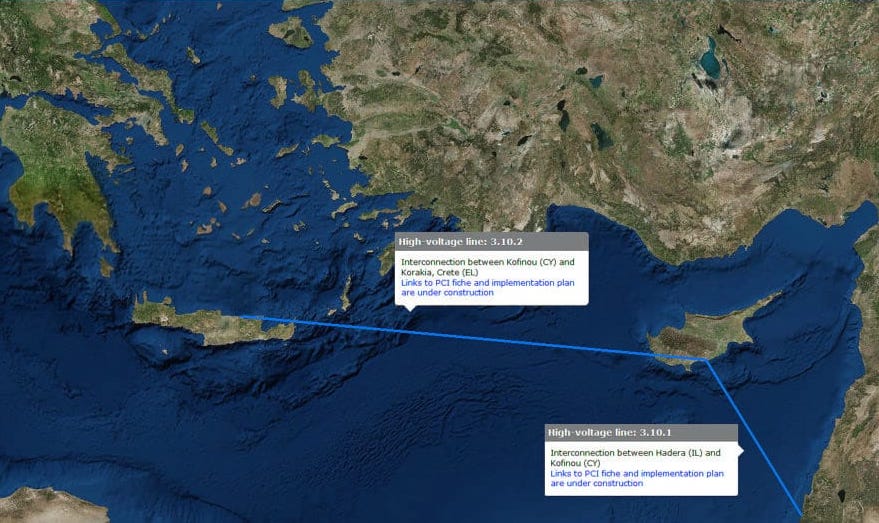The Great Sea Interconnector project will offer triple benefits to Cyprus, with better energy security, a ‘green mix’ of power generation and cheaper energy for all consumers, the Greek Independent Power Transmission Operator (Admie) said on Tuesday.
“The Greece – Cyprus – Israel electricity interconnection will lift the energy isolation of the last non-interconnected EU state,” Admie said in a statement.
This interconnection will contribute to achieving the targets set by the European Union for renewable energy penetration by 2040, it added.
All EU countries are moving in this direction, gradually interconnecting their island regions over the last decades, Admie said.
Recently, Malta has also been interconnected, the second to last interconnected country in the European transmission system and the smallest EU member state.
Seeking to highlight the benefits of an interconnection, Admie used Crete as an example where the maximum demand is 0.8 GW, which corresponds to about 65 per cent of Cyprus’ maximum demand.
“It has been proven that the double interconnection of Crete, from Attica and the Peloponnese, will not only not burden consumers but, on the contrary, is expected to lead to significant savings in electricity bills,” Admie said.
“It can be reasonably understood that if the interconnection of Crete, an electricity system with a maximum demand of around 0.8 GW, a capacity of 1.2 GW and a total cost of around €1.5 billion, is economically viable and preferable compared to the stand-alone development of its electricity system, then the interconnection of Cyprus, a larger electricity system with a maximum demand of around 1.25 GW, a capacity of 1 GW, is equally beneficial.”
The operator added that the Greece-Cyprus-Israel electricity interconnection will enable Cyprus to become a major energy hub in the Mediterranean, thanks to the export of green energy to Europe through the cross-border electricity interconnections promoted by Admie.
The interconnector will also enable electricity exports to Israel, which will be fuelled by both its domestic renewable energy potential and its natural gas reserves.
“The interconnection of Cyprus is the only way to sustainably develop RES and meet European targets while ensuring prices much lower than current levels. Otherwise, in the stand-alone development option, very large storage capacity will be required, pushing up the cost of RES generation, placing a significant burden on Cypriot consumers,” Admie highlighted.
The operator’s management has a meeting scheduled in Cyprus with energy ministry officials and the Israeli Regulatory Authority on developments for the Cyprus-Israel interconnection.







Click here to change your cookie preferences